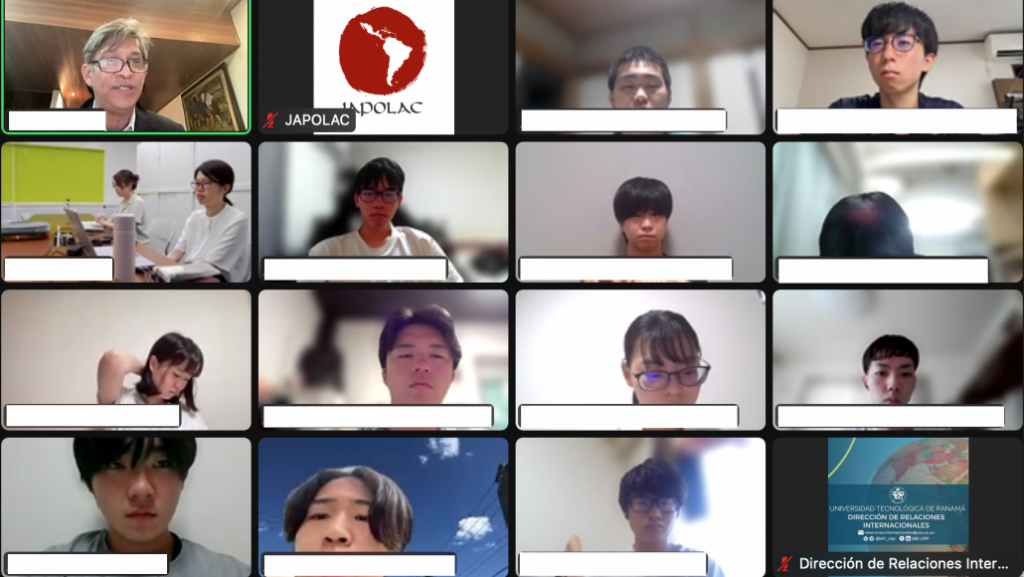Seventh Short Online Program Between Panama Technological University and Chiba University

On September 6, the Technological University of Panama and Chiba University launched the seventh edition of their short online program as part of the University Internationalization Program, coordinated by the Japan Association for Promotion of Latin America and the Caribbean (JAPOLAC).
This three-week synchronous program, conducted entirely in English, provides Japanese students with a unique opportunity to acquire practical knowledge that extends far beyond the classroom. It focuses on delivering practical and relevant knowledge, fostering a deeper understanding of Panama’s strategic importance.
A key feature of the program is the deep exploration of the Panama Canal, from its historical inception to the contemporary challenges of water management and climate change. Through this, students gain a comprehensive understanding of the canal’s crucial function in global trade and logistics, highlighting its enduring importance in an increasingly interconnected world.
In addition to this, the program examines Panama’s position as a global logistics hub. Lessons on supply chain management, international transportation, and the intricate mechanisms of world commerce provide students with essential knowledge about the flow of goods and services across borders, and Panama’s role in facilitating this movement.
The program also addresses pressing environmental issues through a segment on sustainable forest management. Students will learn about Panama and Central America’s proactive policies in response to environmental challenges, showcasing the region’s significant contributions to global conservation efforts.
To foster cross-cultural exchange, a dedicated segment encourages meaningful interaction between Japanese and Panamanian students, promoting mutual understanding and enriching their global perspectives.
JAPOLAC’s short online programs are thoughtfully designed to offer Japanese students not only practical insights into Latin American and Caribbean countries but also to inspire them to explore these regions further through study and travel opportunities.
